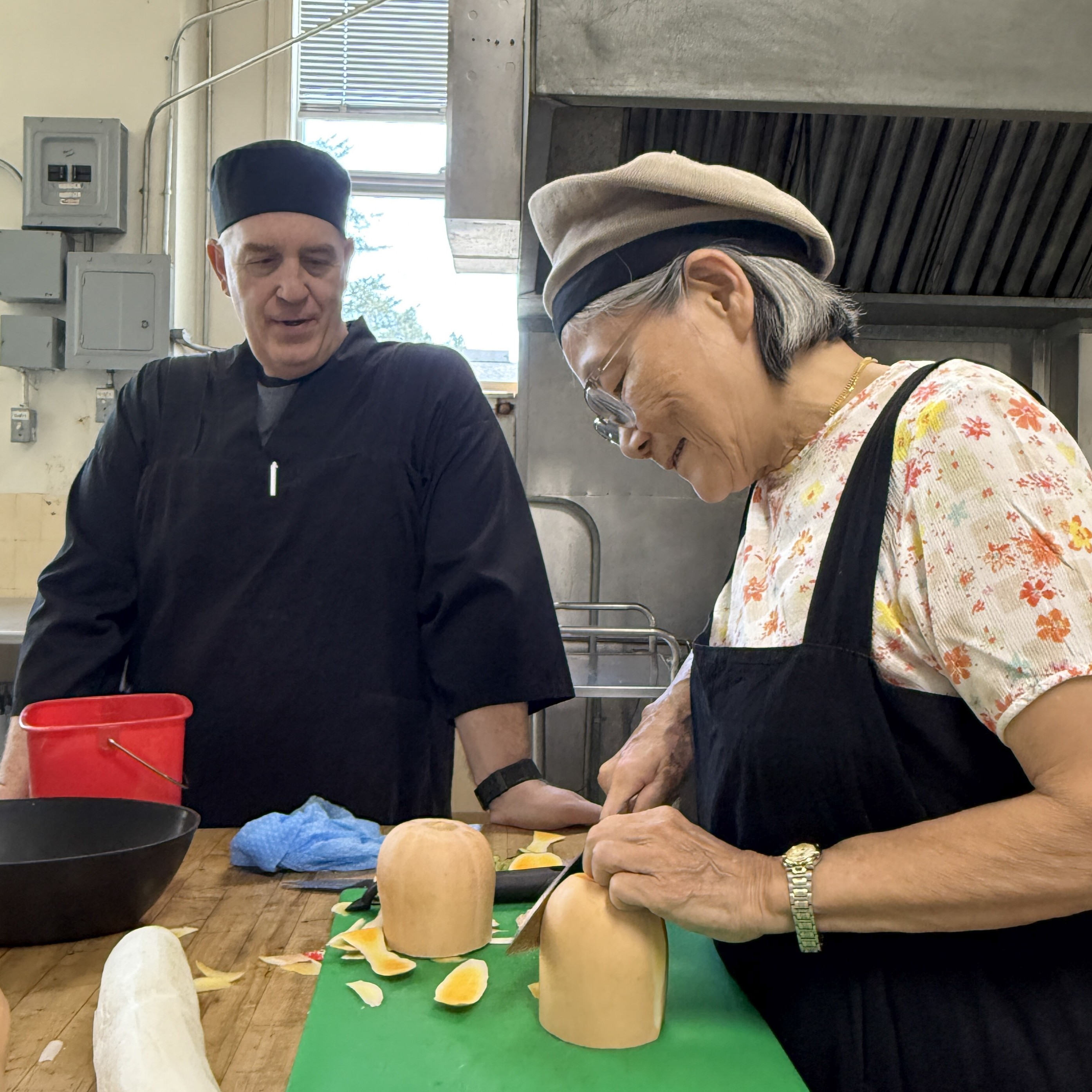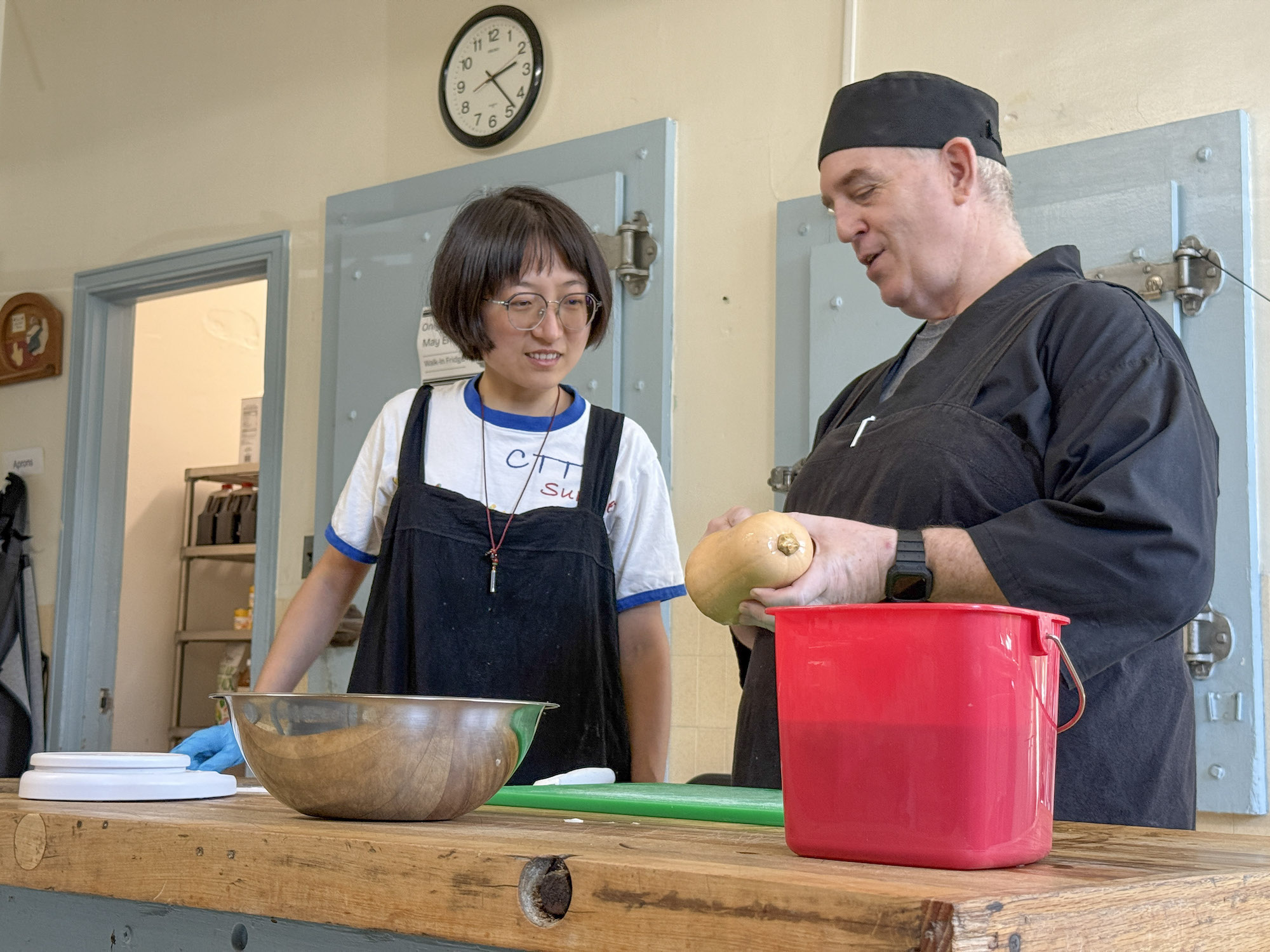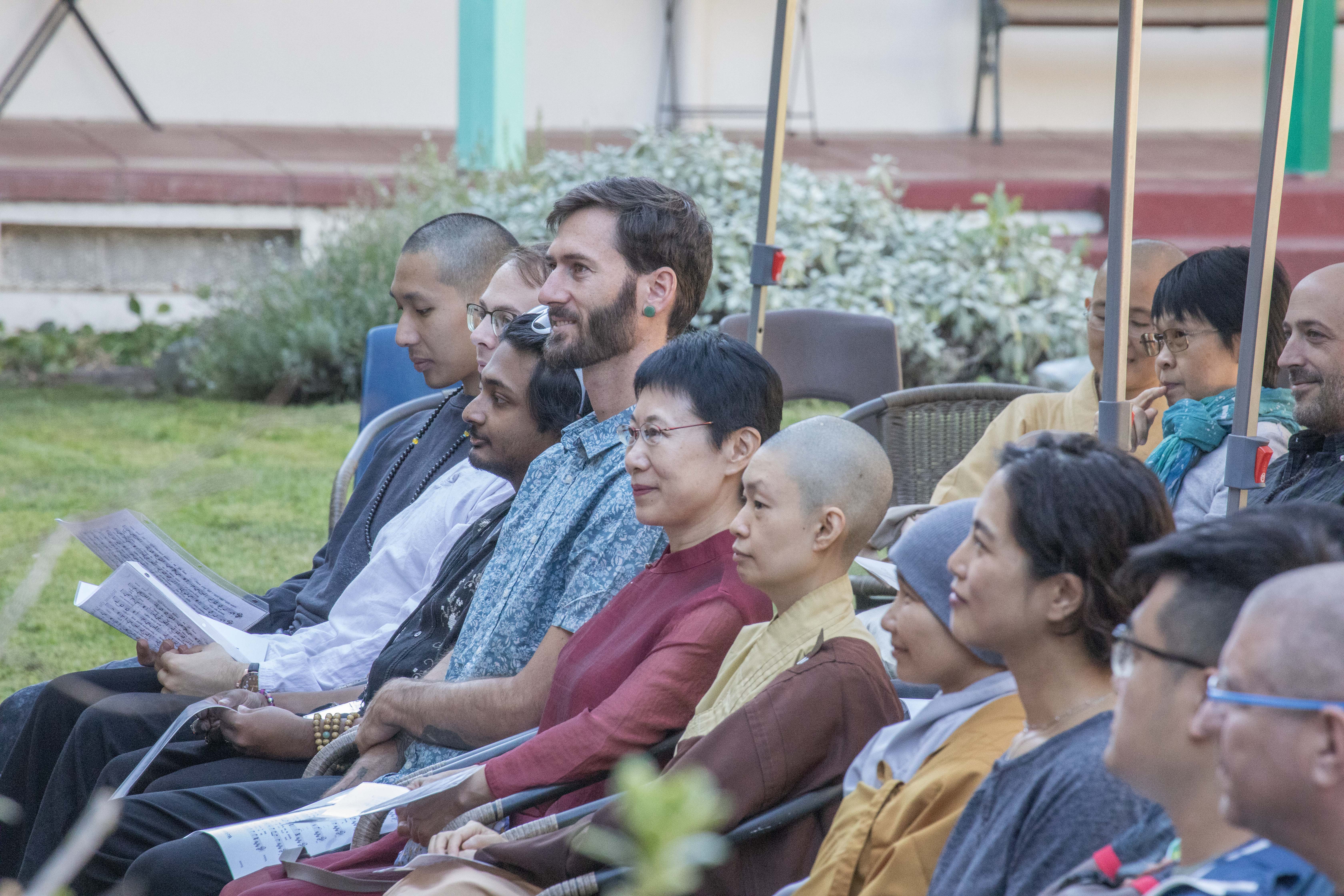
The Christian contemplative Thomas Merton says the secret to getting through difficult and desperate moments is humility–
A [person] who is truly humble cannot despair, because in the humble person there is no longer any such thing as self-pity…If you were truly humble, you would have no more illusions to defend. Your movements would be free. You would not need to be hampered with excuses which are really only framed to defend you against the accusation of pride…A humble person can do great things with an uncommon perfection because they are no longer concerned about incidentals…Humility is the surest sign of strength.
We asked some of our students how they do it!
Listen to Your Spirit
BA ‘23 Quinn Anderson
Zhuangzi says, “Don’t listen with your ears, listen with your mind. No, don’t listen with your mind, listen with your spirit. Listening stops with the ears, the mind stops with recognition, but the spirit is empty and waits on all things. The Way gathers in emptiness alone. Emptiness is the fasting of the mind” (trans. Burton Watson).
I think this message is highly beneficial in times like these, times of profound change. Listening with our ears, we may hear all the news; listening with the mind, we may get caught up in fear, anxiety, and frustration; listening with our spirits, we can find peace, as that which flows between all things remains steady and still. When the mind becomes overwhelmed or trapped in emotional states, finding that state of quiet emptiness, of listening with our spirits, gives the mind space to release its attachments to the way things are.
Any spiritual practice that alleviates the burden of fear – recitation, meditation, reading, bowing – can be a refuge in times of trouble. I myself am struggling each day to find these moments, and often, when I turn in, I want to run from what I think I see, what I’m afraid to see, what I don’t want to understand. But even just a simple awareness of our spiritual nature, a looking-inward, as we confront the reality before us can offer a relief to the burden.
Personally, I try to pause when getting caught up in the fervor and remind myself of this spiritual nature, and respond instead with kindness, compassion, joy, and equanimity. Once we have that personal calm, when sharing time with our families or whoever we find ourselves sandwiched with, those four qualities can override fear and anger. So, we offer that relief to others after we have cultivated it for ourselves.
Every day, I struggle with my own personal misgivings – but many days, I find that the moments where I get to that root are the moments that most nourish my sense of hope. And I find I regret even more the moments I choose to give in to anger or fear.
Get Good at Being Uncomfortable
BA ‘23 Phoenix Winters
I’ve been doing a lot to keep myself stable and grounded, but I’d sum it up with this song I found a while ago: Extraordinary Machine by Fiona Apple
I’ve had this song in my head for several months now, and it seems like, with each passing week, I find a new situation to apply it to, or a new meaning behind one of the lines. These days, the line, “I’m good at being uncomfortable, so I can’t stop changing all of the time” is one I take great comfort in.
I think everyone should get good at being uncomfortable. Discomfort is unavoidable, but if you’re good at it, you’ll always come out the other side better than you were before.
Build Resilience and Positivity
BA ‘22 Norbel Casas
Since I’ve got home, there has been a change in my daily routine that’s really helped in settling and moving toward stabilization. First, I’ve been doing a specialized qigong routine that was designed by my Qigong teacher to help build one’s resilience and immune system during these stressful times with a spark of gratitude in the practice. The second: I’ve recently started listening to audio tapes from the effective learning system that helps reprogram one’s negativity and paint a positive landscape for one’s future.
Mindfulness, Experience, and Being an “Observer”
BA ‘20 Kathleen Irby
To paraphrase the Sixth Patriarch: You’re either a Buddha or you’re not—sometimes I am grounded and sometimes I’m not. Covid19 has kept me grounded in the moment. Reciting “Guan Yin Pu Sa”…is my family safe? “Guan Yin Pu Sa”…transferring merit. Trying to remain mindful and in the moment keeps a person grounded. Remaining in a state of gratitude is grounding, and again transferring merit. Experience has been grounding. Four years of fire evacuations, 60 yrs. of earthquake preparedness, and 60+ years of living with uncertainty, disappointments, and changes in best laid plans are all humbling to the spirit. But life is not all bitter—the duality is the sweet! Like these past 30 years of peace and tranquility in our forest on Mt. Hannah have been. These contrasts allow a person the perspective to be an “observer,” which is a stable place to dwell. When none of the aforementioned work, some Buddhadharma pops to mind, more often than not it is the Venerable Master Hua’s famous quote, “According with conditions, we do not change. We do not change, yet accord with conditions.”
Journey Inward
MA ‘21 Luke Wu
一席一炷香
一案一盞燈
洞中無歲月
世上已千年
Translation:
One table and one lamp.
One cushion and one incense.
Living in the cave, one does not know what year or month it is.
Out in the world, a thousand years have passed.
This poem summarizes my state of living for the recent many years: outer seclusion and inner exploration.
The way I stay centered is first to set up strongholds throughout the day. In my case, I spend three periods every day dedicated to secluded concentrated spiritual practice and I use my counter to recite Guanyin throughout the day, with varying degrees of concentration depending on the activity I’m in. These practices provide me daily defense against all distress and anxiety throughout the day. They are stable sources of calm and mindfulness. They are also like taking showers, so that my physical-spiritual being doesn’t stink.
The result of all these practices is that I begin to journey inside, a journey that leads one to encounter the wonders hidden within our physical mental being, a treasure trove. As I journey more and more inside, the outside things begin to lose their power over me: they lose power both in attraction (because my inner spiritual experiences are becoming more and more interesting) and in worry (so that what happens outside matters less).
I gain more and more access to the unconditional joy inside that’s not dependent upon sense stimuli and that I trust everything is okay as long as I can still practice. It’s all that matters.
Progress, Not Perfection
MA ‘20 Xuan Ooi
After I returned to my family home in Florida, I found myself drawn to my ukulele. Listening to music has always been my safety blanket, but playing music was something I let go of ten years ago out of complacency and insecurity.
One of the concepts I learned from DRBU and the texts was confidence, and how fearlessness quickly precedes or follows. I challenged myself to believe in my ability to progress, consequently choosing to learn a song that required me to learn more complex ukulele techniques and chords as a task to focus on and improve on while in quarantine. I watched a YouTube tutorial and wrote down ukulele tablatures, Chinese lyrics and all, and consistently practiced until my fingers formed callouses. I’ve kept a quotation of my own in mind: “Progress, not perfection.”
Music opens a place in my heart and mind that is more keen on listening and forgiveness. I often play when I need to reign in my mind, relieve overwhelming emotions, or open a space for happiness to renew itself. There’s something about playing my ukulele that quiets my mind, whether because I feel the subtle reverberations of the strings through the ukulele body, or through my own body while I sing. I would occasionally take a break from my challenge and look up ukulele tablatures for songs I love from my favorite TV show, Steven Universe. Singing those simple, yet beautiful songs really ignited both hope and joy in my journey.
My advice? Pick up or return to something creative that brings you lots of joy in the process. Embrace the mistakes when they happen, and know that with patience and effort wonderful things will rise forth.
As one of my creative heroes Monty Oum once said, “Keep moving forward.”
Putting It All Into Practice
MA ‘20 Christine Buck
Cowering from the anxiety and pressure of this new existence during hunkering down, I resisted sharing mostly because I am angry that my whole life, and the lives of everyone around me, have been turned upside down. Yes, having patience and gratitude, remembering to recite, focusing and helping others, are all the right solutions to change one’s state in times like these. But it is one thing to know what to do and another to put them into practice. Transforming knowledge into practice isn’t easy when your habituation is to get upset, indulge, or just ignore the chaos and walk away. Yeah, just leave.
But those of us who have resolved upon bodhi sooner or later pick ourselves up and hearken to verses of the sutras we can remember, the Four Noble Truths, and the Eightfold Path. We do have the information! It’s getting our heads (okay, my head) out of that dark, smelly place and once again resolving, vowing, and hopefully striving to walk the road our teachers, both the Buddhas and our professors at DRBU, paved. They inspire us with examples of their virtuous words and deeds increasing wisdom. Wisdom leads to performing healthy practices and leaving suffering. Voila! I knew it was a good idea to sell my house, give almost everything away, and come to DRBU. Look what I learned and can even manage to practice on a good day!


